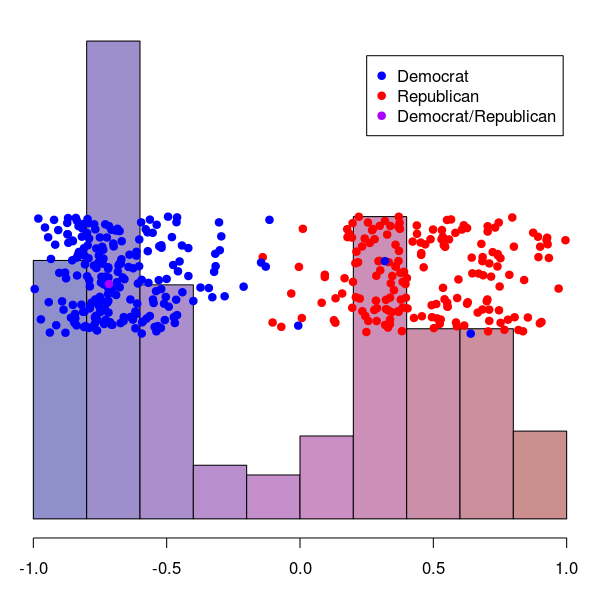What good are left-libertarians?
Published by Skeptikos on Jun 18, 2014
My friend Alex Strekal, a former libertarian, wrote a dismissive piece about left-libertarianism at his “Anti-Libertarian Criticism” blog. At C4SS, a left-libertarian website, Natasha Petrova kindly responded. I have my own thoughts, but first, a quick review for non-libertarians:
Left-libertarians typically start as anarcho-capitalists, then modify their views with criticisms from leftist groups – anarchist communists, Marxists, feminists, the Wobblies, and so on. Instead of ditching libertarianism, however, they point to ways that state involvement exacerbates leftist issues, and argue that free market anarchism is part of the solution. More in-depth explanations can be read here and here.
Alex argues that left-libertarians remain on the right: “A polyamorist sex positive feminist anti-racist capitalist who is into 3D printing is still a capitalist.”
Natasha disagrees:
[Alex] accuses us of offering a narrative very similar to other so called “free market” think tanks of the right like CATO or Heritage. None of these institutions weave a tale of worker empowerment through freed markets or a more egalitarian society resulting from freed market forces. They don’t attack corporate power/privilege like we do nor the privileges/power of the established rich.
It's true that left-libertarians provide a different narrative than that of Cato and the Heritage Institute: instead of rationalizing free market anarchism from the right, they rationalize free market anarchism from the left. But most people who study these problems would scoff at the claim that free market anarchism could contribute to any solution.
Tellingly, left-libertarian rationalizations convince few who aren't already committed to libertarian ideas. Thus, liberal economists don't support ending the state, even though Kevin Carson wrote a 600-page book arguing that the state causes suffering by creating large corporations. (How much more suffering would ensue if the corporation didn't exist, and it was impossible to run large businesses? Are we willing to turn corporate law back to the 1400s?) On economics and the role of government, the left-libertarian vision is just as much a fantasy as the anarcho-capitalist vision.
Where I disagree with Alex is the importance of the narrative. Libertarian ideology, with it's narrow focus on government intervention and individual choice, leaves many libertarians clueless about more subtle cultural issues. So if left-libertarians defend, for example, feminist ideas, they can introduce cultural awareness where it's most needed. These guys and gals are preaching left-wing social ideas in the belly of the right-wing beast.
And, even though left-libertarians do support many of the same regressive economic policies as Cato and the Heritage Insitute, they rarely get involved in activism to promote them. The boost provided to Cato and Heritage is negligible. Even the idea of left-libertarians getting involved in politics is kind of laughable.
This leaves them with a net plus. Left-libertarians spend little time promoting their senseless, regressive economic policies, and lots of time promoting important progressive cultural issues. I wish they were much better, but I'll take what I can get.

Noor
7-21-2014 04:41pm
I'd say about at least a third of left-libertarians came via the far left, journeying from social democracy to anarcho-communism to mutualism, actually. My issues with left-libertarianism today are kind of the reverse of yours. I'm perhaps a bit more left on economics than many left-libertarians, but I remain pro-market. I don't mind criticisms of the market and I take issue with most of the libertarian rhetoric used to defend markets. I do very much take issue with what left-libertarianism has devolved into, buying into most of the modern left's bullshit on social justice and 'privilege' issues. They're right to call out the social conservativism in right-libertarian circles, but they then dive straight into the cesspool of the modern social justice left, which really isn't much better and in many ways buys into the same premises as the conservatives and reactionaries.